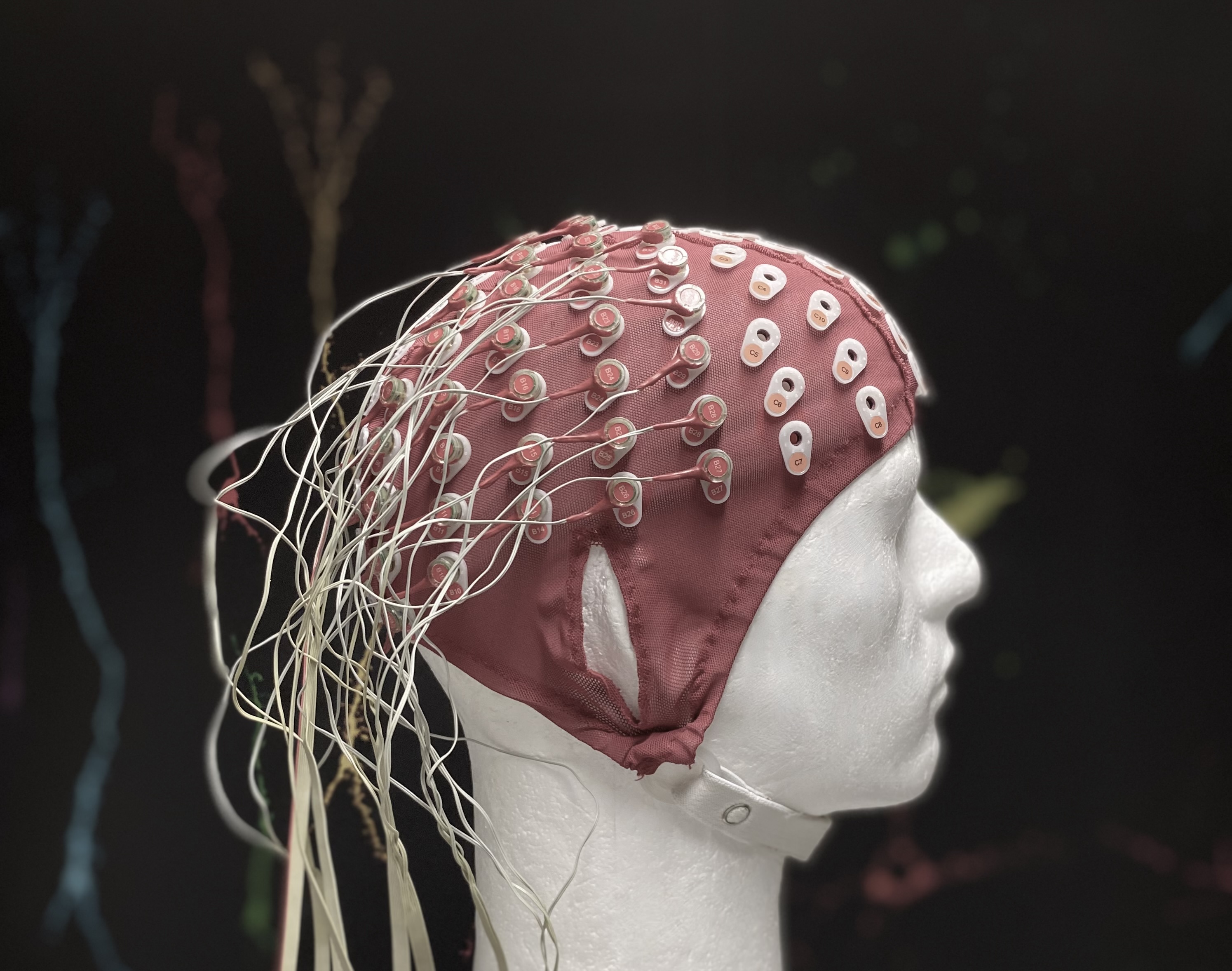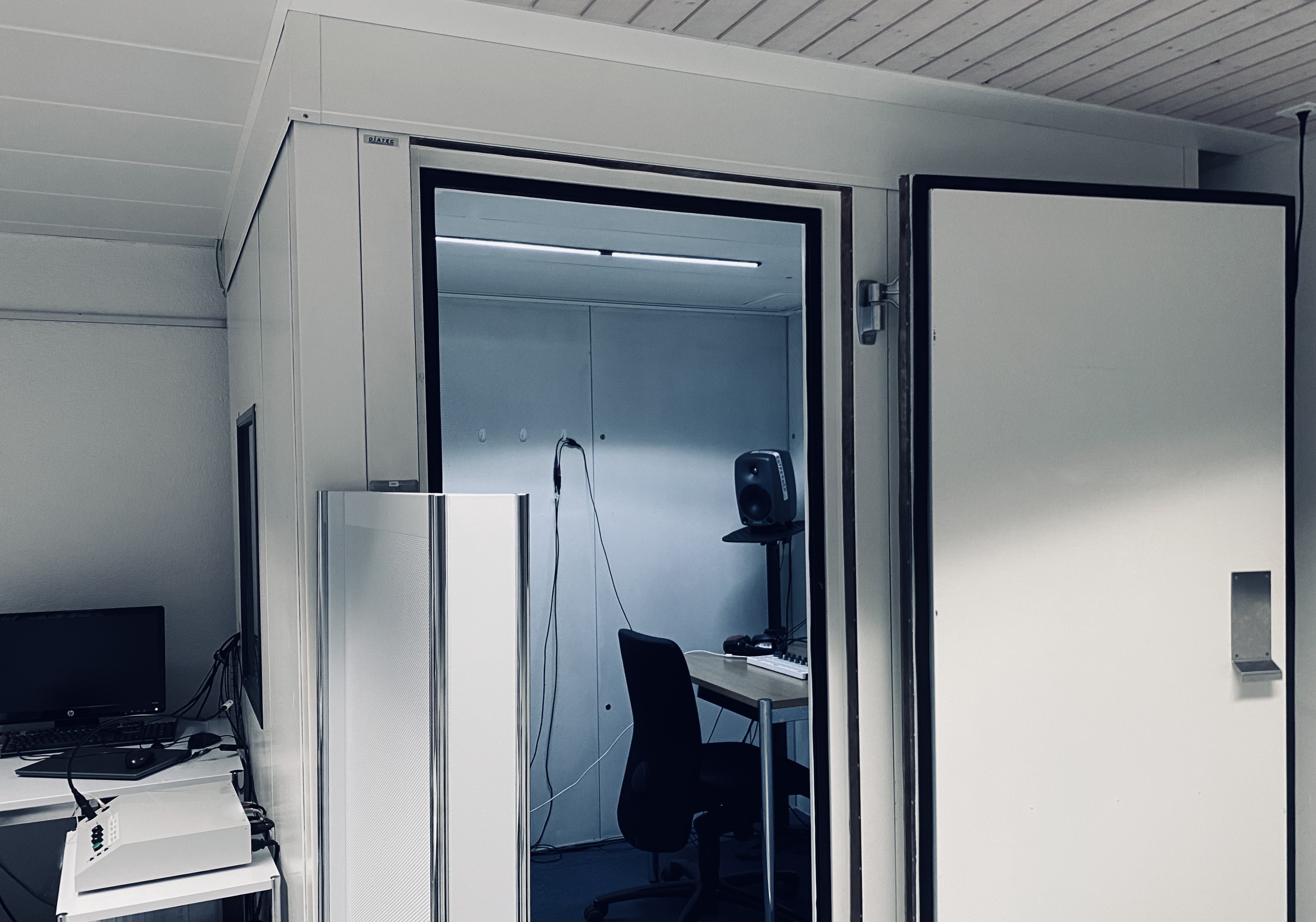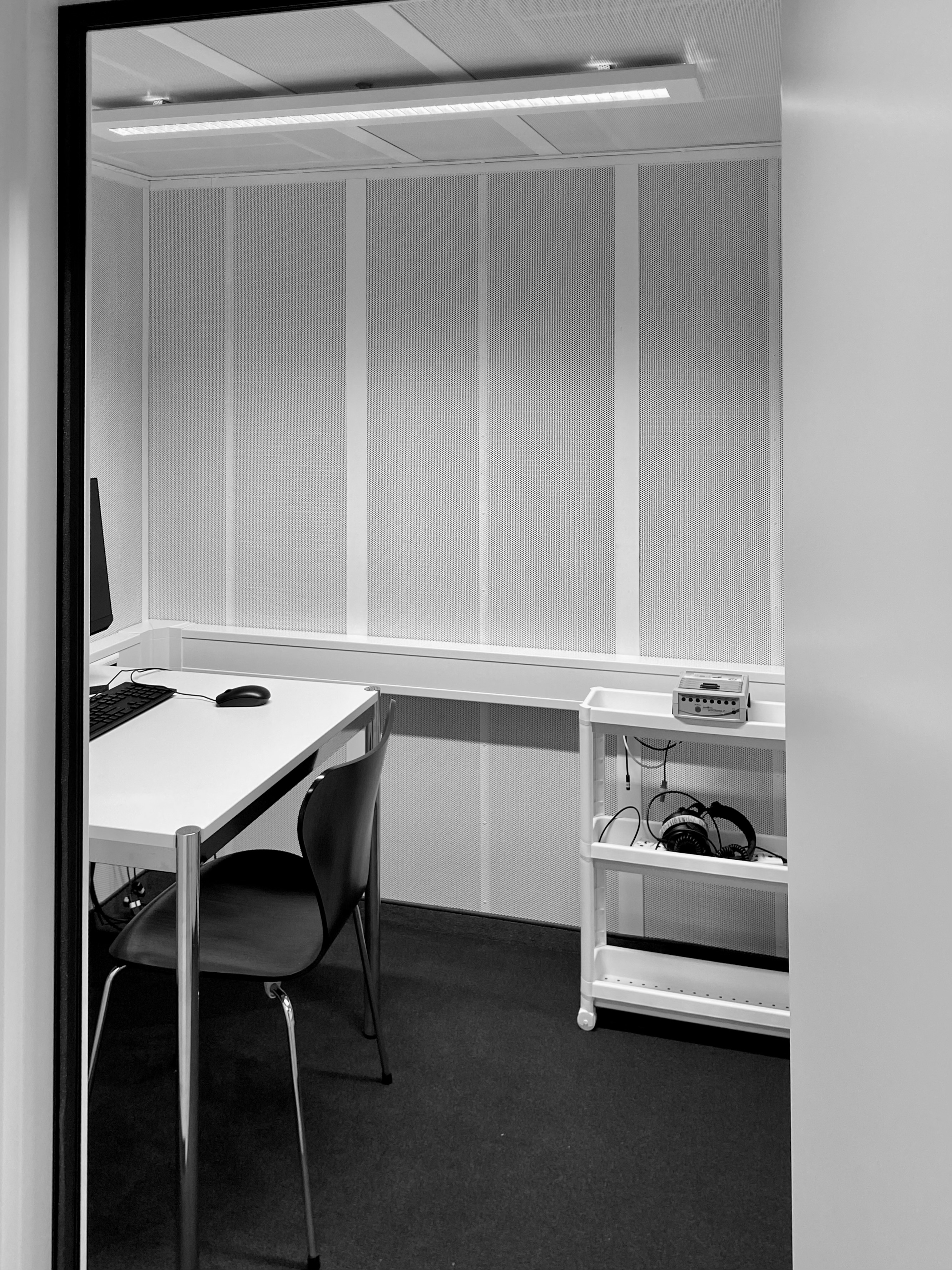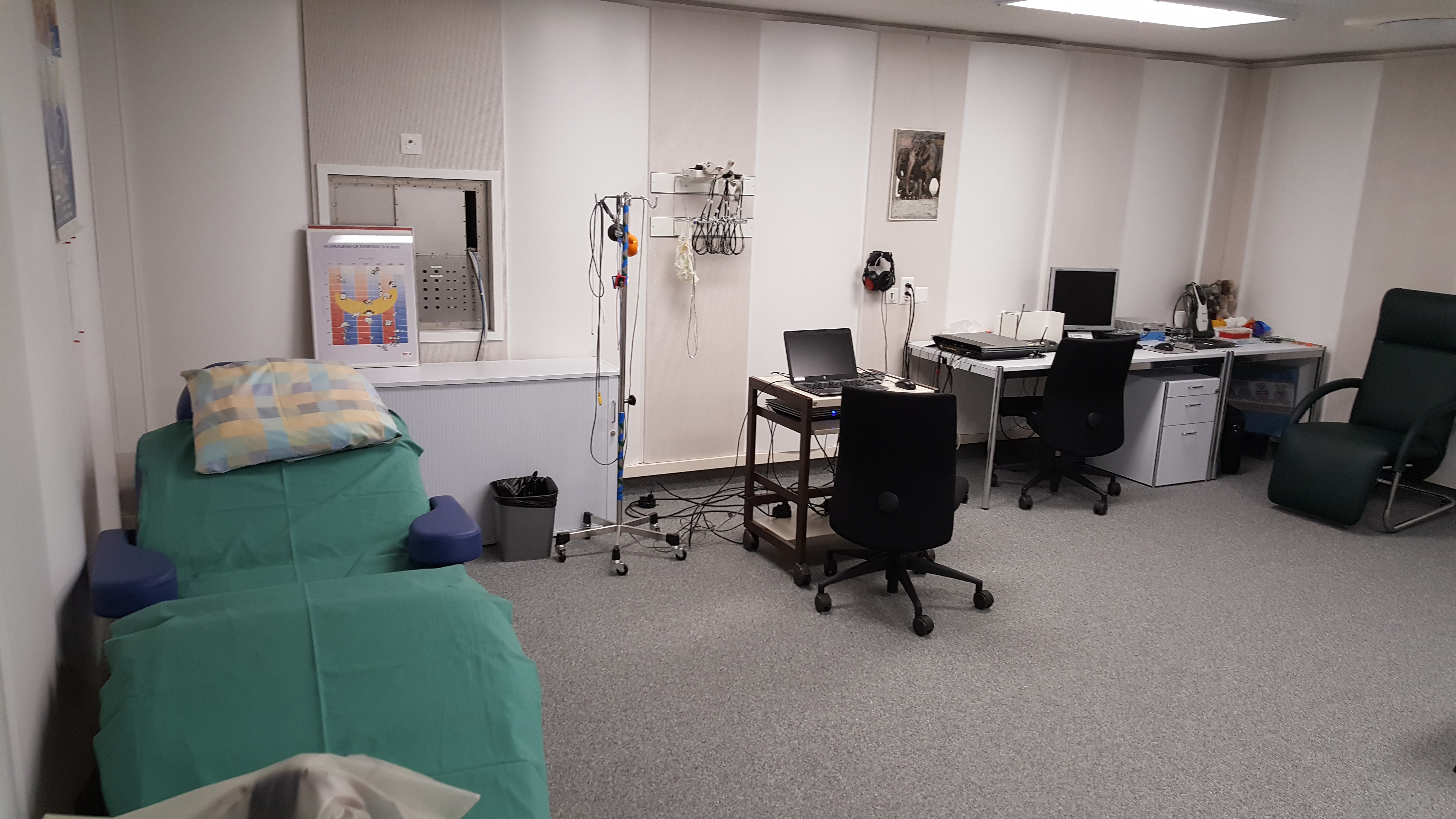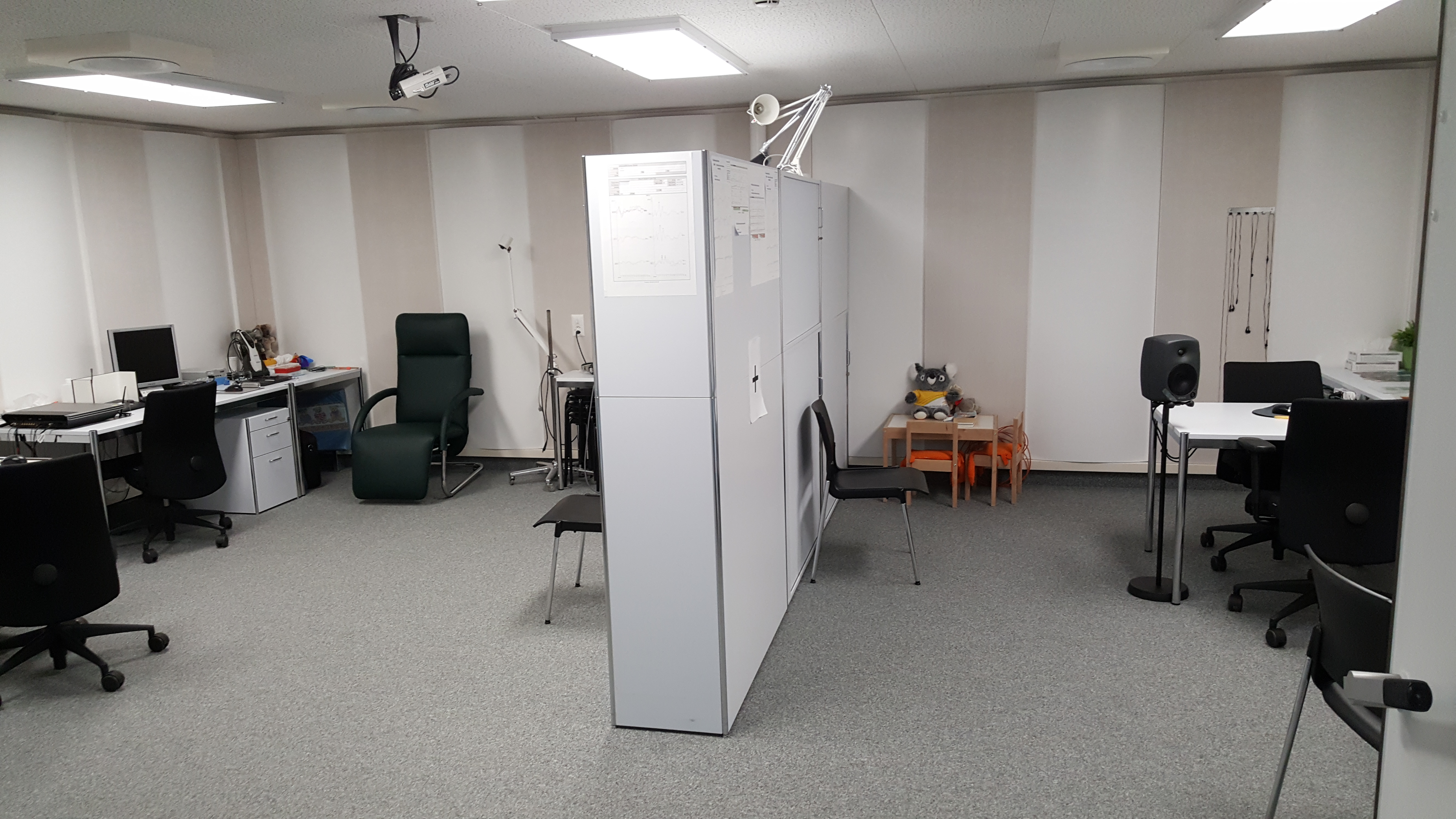Laboratories
Our EEG and neurofeedback laboratory
Electroencephalography (EEG) has been used in neurological and neuropsychological research since the 1920s to measure the electrical activity of the brain. This involves recording voltage fluctuations on the surface of the head. This technique enables us to investigate how the human brain processes speech and acoustic signals. It also allows us to investigate the effects of chronic tinnitus on the brain.
These principles are also used in neurofeedback. Neurofeedback is a non-invasive method in which people learn to regulate their brain activity. They receive real-time feedback on their brainwave patterns in order to complete targeted training. This can be used for various conditions such as attention deficits, anxiety, sleep disorders and even tinnitus.
EEG and Neurofeedback Lab Scheuchzerstrasse
|
|
The EEG and neurofeedback laboratory at the University of Zurich on Scheuchzerstrasse offers all the equipment and facilities for EEG recordings, neurostimulation and neurofeedback training. Thanks to the latest EEG & software technology and trained neurofeedback therapists, you can enjoy the training in a professional, calm and relaxed atmosphere. |
|
|
The electromagnetically insulated EEG chamber offers the possibility to protect the recording of brain waves from interfering signals. In our laboratory in Scheuchzerstrasse, we have two shielded EEG booths equipped with modern EEG systems that enable precise recording of brain activity. |
The recorded EEG data can be analyzed by using various established evaluation methods (event-related brain potentials, source estimation, time-frequency analyses, microstate analyses, wavelet analyses, topographic dissimilarity, etc.).
Based on the current state of research and our own data, we develop specific neurofeedback protocols in our laboratory based on source estimation and real-time time-frequency analyses. In contrast to conventional neurofeedback methods, this allows us to precisely control and modulate the brain regions and networks in question as well as certain oscillations.
EEG Lab University Hospital Zurich
|
|
In addition to expertise and staff, the University Hospital Zurich also supports tinnitus research with additional laboratory space. |
|
|
The laboratory rooms provide opportunities for a variety of imaging procedures, such as EEG examinations, as well as the possibility of detailed audiometric tests. |
